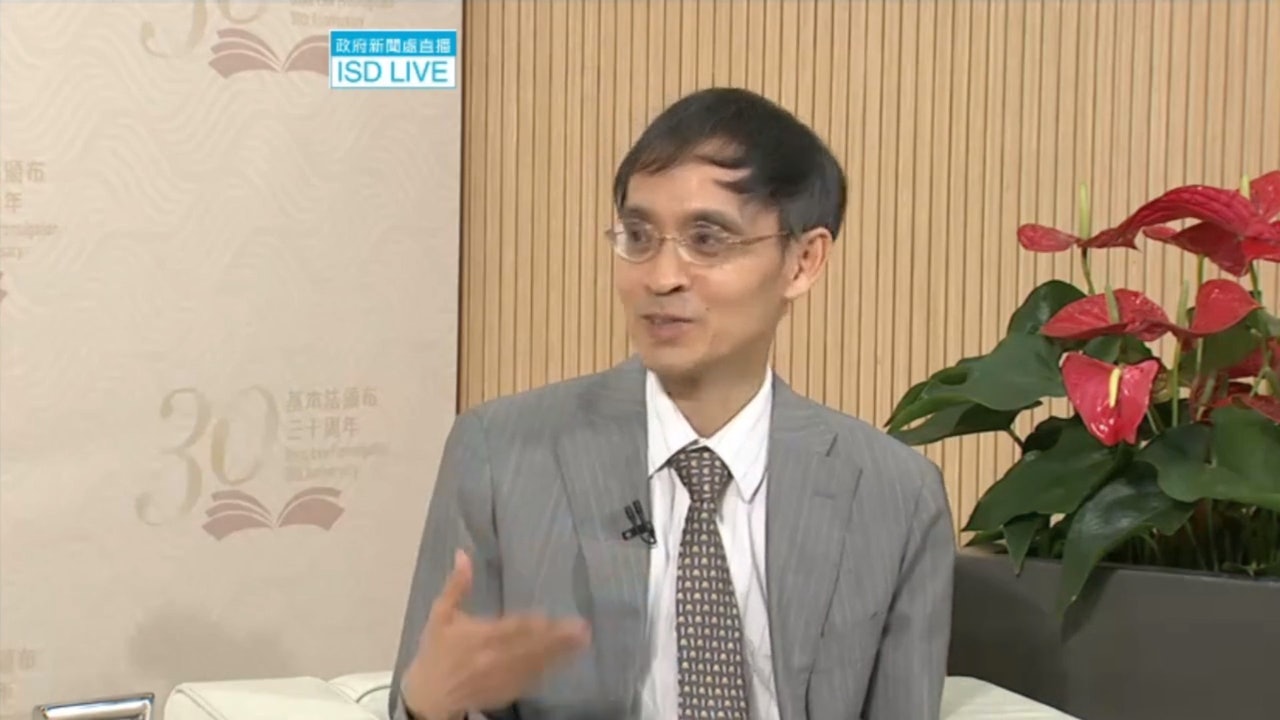Political situation
Written by: Zhou Lixi, Zheng Rongdi
2020-06-08 19:06
Date of last update: 2020-06-08 19:06The Hong Kong Government held an online seminar on the 30th anniversary of the Basic Law. Zhang Xiaoming, deputy director of the Hong Kong and Macau Affairs Office, stated that the establishment and functions of the relevant central security authorities in Hong Kong will effectively prevent, prohibit and punish the above four criminal acts and Activities are principles and fully respect the independent judicial power and final adjudication power of the Hong Kong Special Administrative Region.
Chen Hongyi, a member of the Basic Law Committee and a professor of the Faculty of Law of the University of Hong Kong, said that he believed that Zhang Xiaoming’s remarks would be tried by the existing courts and judges in Hong Kong after legislation on behalf of the National Security Law. As for Zhang Xiaoming, the relevant legislation and enforcement are in line with the principles and spirit of modern rule of law, and will not expand the face of the attack. Chen Hongyi believes that this represents the principle of rule of law in Hong Kong will be reflected in the National Security Law, including the highly predictable law operation, so that the public can be clear Learn that those actions have a chance to break the law.
Former Secretary for Justice Liang Aishi also pointed out that I believe that the National Security Law legislation has many legal principles that are in line with Hong Kong. Therefore, after the National Security Law is enacted, it will not be much different from the original legal system of Hong Kong.
At the forum, Chen Hongyi (right) was invited by Tan Huizhu (left) to explain the laws in Hong Kong that can be used to protect national security. (Screenshot of seminar live broadcast)
Chen Hongyi explained in the talk session of the seminar that Hong Kong has laws that can be used to protect national security. For example, Hong Kong has some laws in the Hong Kong-British era to protect the governance of the Hong Kong-British government, and there is a political department in the police force. Check the background and other work of people who joined the government. In terms of law, the Crimes Ordinance continued to be effective after the reunification, including the crime of treason and incitement to rebellion, which was used to prosecute newspaper incitement.
However, Chen Hongyi also pointed out that the Crimes Ordinance does not include crimes that subvert the Central People's Government and split the country. As for foreign interference, Chen Hongyi said that when the new association regulations were established in 1997, there were already regulations dealing with the conduct of foreign political groups in Hong Kong, but excluding foreign interventions proposed by the "Hong Kong version of the National Security Law", including the Basic Law Article 23 does not mention related matters. In terms of anti-terrorism, Chen Hongyi pointed out that Hong Kong’s anti-terrorism law is relatively simpler than that of western countries. Only the United Nations (Anti-Terrorism Measures) Regulations, which impose sanctions on property, he believes are relatively inadequate.
Tan Huizhu said that although some people say that the legal system in Hong Kong is sound, there is actually a big gap left, which is used to jeopardize social security. (Screenshot of seminar live broadcast)
National Security Law | Zhang Yong, deputy director of the Basic Committee: 23 unauthorized clauses, the central government must pay attention to national security threats
Hong Kong version of the National Security Law|Zhang Xiaoming approves the opposition to seize power and change the sky to urge Hong Kong people to think about the fate of Hong Kong in 2047
Zhang Xiaoming: To some extent, the National Security Act is forced by the opposition to not expand the area of attack or accuse Luo Zhi
Tan Huizhu: There is a big gap in Hong Kong being used to endanger social security
Tan Huizhu, deputy director of the Basic Law Committee, said that although some people said that Hong Kong has a sound legal system, it actually left a big gap and was deliberately used to endanger social security. There is a voice in the society that the 23 legislative powers of the Basic Law belong to Hong Kong. She rebuts that Hong Kong still has not been able to legislate on 23 clauses in the 23 years since the return of Hong Kong. In addition to the social problems that occurred last year, there must be a solution. It belongs to the country and has never been given up.
Tan Huizhu also pointed out that he encountered difficulties when drafting Article 23, because he was not familiar with the overall concept of national security and could only refer to the criminal law. The "counter-revolutionary crime" was based on the premise of "one country, two systems" and could not be implemented in Hong Kong. When I wrote about the laws on national security, Hong Kong should enact laws for seven crimes, and wait for everyone to digest some of the problems that the criminal law cannot be enforced in Hong Kong." She believes that the country’s trust in Hong Kong was very rare at the time, and the world No central government will delegate such tasks to local governments.
Hong Kong version of the National Security Law Zhang Xiaoming Chen Hongyi (legal circles) Tan Huizhu Liang Aishi Basic Law 23 Basic Law







/cloudfront-eu-central-1.images.arcpublishing.com/prisa/3I74UEXLYRBBRPGPSGWNN6WXH4.jpg)